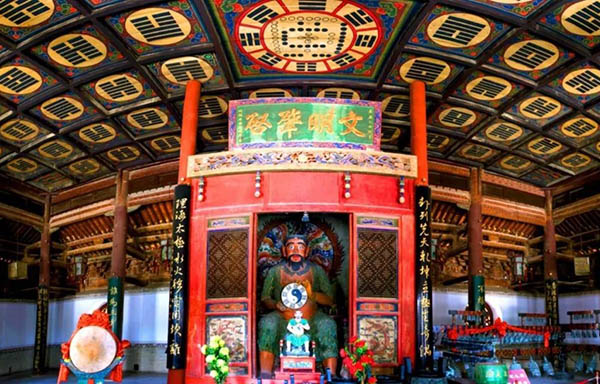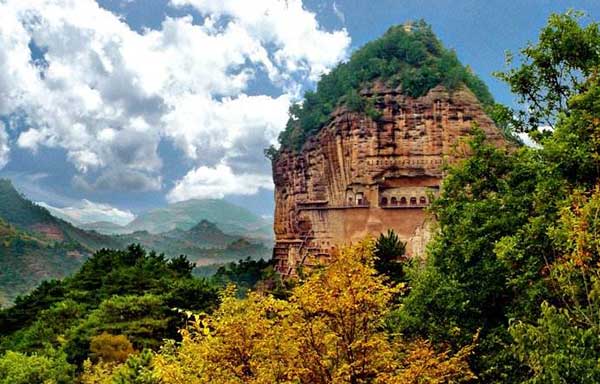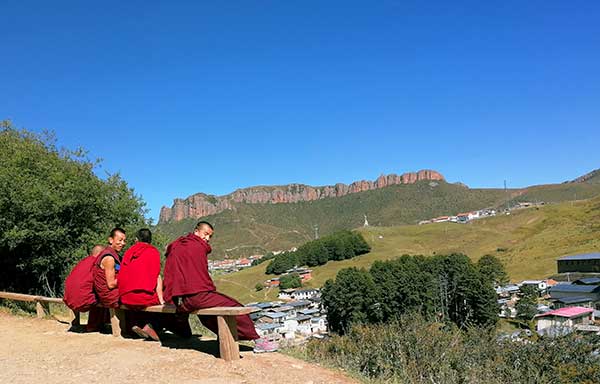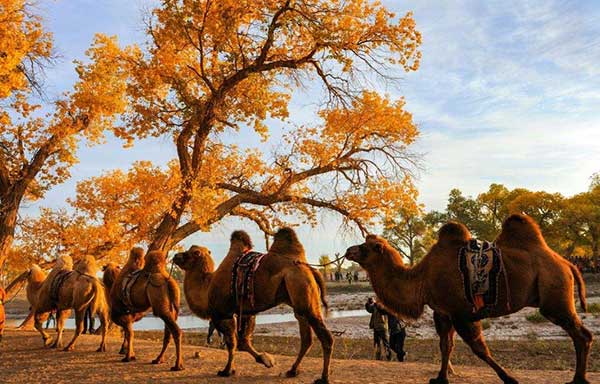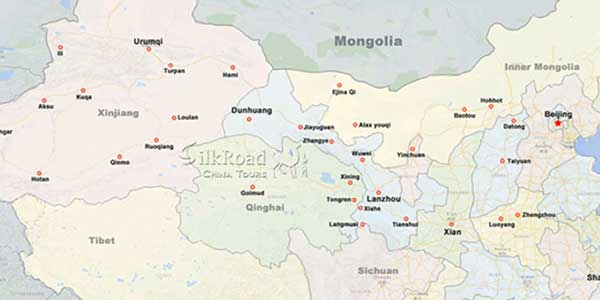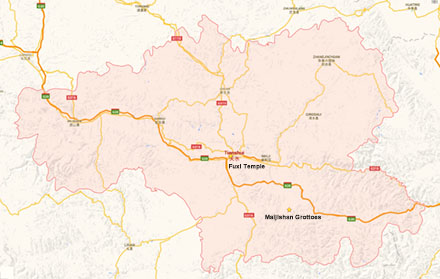 The city of Tianshui was for centuries an important town on the Silk Road, being the first stop in Gansu for travelers and merchants to various parts of northwestern China and beyond. It was many centuries before this, however, that the town found its fame, deemed as the birthplace of the legendary emperor Fuxi. Today throngs of people still flock to the Fuxi Temple, in the western section of the city, to commemorate him.
The city of Tianshui was for centuries an important town on the Silk Road, being the first stop in Gansu for travelers and merchants to various parts of northwestern China and beyond. It was many centuries before this, however, that the town found its fame, deemed as the birthplace of the legendary emperor Fuxi. Today throngs of people still flock to the Fuxi Temple, in the western section of the city, to commemorate him.
Recent years have witnessed the rapid industrialisation of the city, that has rid it of much of its character, and expanded its size enormously. It is much due to these facts that people visiting Tianshui come mainly for the out of city attractions. Your choice of location in town probably should be influenced more by transport access to and from here, than for any other reason.
The city is now rather strangely divided, by 20 kilometers, into two sections: the slightly more upmarket eastern section, Qincheng, and the uglier western section of Beidao. Qincheng is the main area of the city, has the best hotels, all of the local sights and is where you will arrive if you are travelling here by bus. Beidao, however, has two things going for it: it is where you will arrive if you are travelling to the city by train, and it is the best area for getting to Tianshui's best attraction by far, the Maijishan Grottoes.
The Maji Mountain ("Wheat-stack Mountain") is the redeeming saviour for Tianshui, a beautifully serene area of wooded slopes, ancient Buddhist grottoes, large statues and many areas for pleasant hiking. The Mountain is situated some 30 kilometers on a winding road southeast from the town, and is among the four largest Buddhist cave complexes in China with an existing total of a stunning 194 grottoes.
Weather

Attractions in Tianshui
Related Tours
General Information
Alias: Qinzhou
Area: 14,392 sq km
Location: Gansu
Airport: 13 km from city
Train Station: 15 km from city
Population: 3,700,000
Relevant blogs
-
How did the name of Tianshui in Gansu come about?
The name Tianshui is very pleasant to the ear, and it reminds one of that exquisitely beautiful verse, "After getting drunk, one doesn't know if the sky is in
-
The 8th Silk Road Hotel Festival was successfully
On December 27th, the "8th Silk Road Hotel Festival" grandly opened at the Yujing International Hotel in Zhangye. This hotel festival gathered industry experts,
-
The Karez Irrigation System in Turpan has been sel
On September 3rd, at the 75th Executive Council Meeting of the International Commission on Irrigation and Drainage held in Sydney, Australia, the 2024 (11th bat
-
What is the connection between "dragons" and "s
In traditional Chinese culture, the snake has a dual identity of auspiciousness and danger. Ancient people believed that the snake not only possesses divine cha
-
Endangered Przewalski's Horses Spotted at Dunhuan
<p>In early February, a group of special "visitors"—the Przewalski's horses—appeared at the Dunhuang Yumen Pass scenic area in Gansu Province, a U
-
The Fourth Dunhuang Cultural Tourism Supplier Conf
On the morning of February 18th, the Fourth Dunhuang Cultural Tourism Supplier Conference in Northwest China commenced at the Dunhuang International Convention

